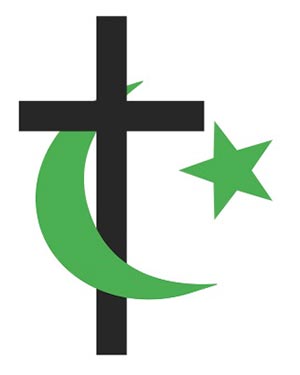 A local tribute to Muslim/Catholic cooperation
A local tribute to Muslim/Catholic cooperation
About four years ago I was privileged to convene a small dialogue group of local Catholic and Muslim leaders. Since then, meeting about every month or month and a half except for the major seasons of Easter and Ramadan, the nine of us explored our respective religious beliefs and practices.
We have become good friends and have often desired to share our convictions with the larger community. That goal seems especially urgent during this time of severe unrest and violence in the Middle East when serious misunderstanding of the nature of Islam can unfortunately be fostered and the true vision of our Catholic relationship with Islam as articulated by Vatican II’s Nostra Aetate (Declaration on the Relationship of the Church to Non-Christian Religions, §3) obscured.
In lieu of my regular column this month, I take the liberty of offering the following statement from our Milwaukee Dialogue in the hope that it might assist Catholics to understand a bit more clearly a few of the complexities and errors of the current conflict in the Near East. We publish this statement as the tragic anniversary of Sept. 11, 2001 approaches and reported events of savage ISIS brutality continue to cause harm to innocent Muslim and Christian people. +RjS
As Muslims and Catholics engaged for a number of years in rich and meaningful dialogue, we have learned much about one another.
We have studied, challenged one another, developed bonds of friendship, and cherished our time together. We have come to realize that the core values of our faith traditions, derived from our belief in the one God, call us to love one another and to use the talents that we have been given to affirm and ensure the dignity of every person and of all creation.
As people of faith we are called to work together to build peace, justice and harmony in our communities and in our world.
As Catholics and Muslims we share a common concern to speak the truth about each other. When we fail to do so, whether through our words, actions, failure to act, or failure to speak, we ought to seek forgiveness from one another.
In this country and at this time, we are very concerned about certain misconceptions regarding Islam – sometimes intentionally promoted, sometimes spoken from ignorance – that impede our ability to work toward peace in our world and in our communities.
The behavior of radicals and fringe elements, despite being rejected by the overwhelming majority of Muslims and repeatedly denounced by Muslim leaders and scholars, continues to be portrayed as normative for all of Islam.
Individuals, including certain public figures who give credence to such a view are, in our judgment, bearing false witness. We believe it is our duty to serve as ambassadors for one another, speaking the truth, so that we might work together with all people of good will for peace and for the common good.
Unfortunately violence and terrorism are universal issues, not peculiar to one religion, culture, time or place. We believe that terrorism by anyone, at any time, and in any place, must be condemned and that responding to the conditions that lead to the despair that often fuels terrorism and violence is a common responsibility.
Throughout history portions of Scripture in both our traditions have been misused to encourage violence, terrorism and subjugating behavior. However we believe that our texts must be understood in the context in which they were written and cannot be used to justify violence or oppression. We also recognize that underlying the perverse use of religion, there are often social, economic and political factors at play.
Together, we share a common concern for the future of our society. Together we must seek out the causes of dysfunctional behavior in our homes, our communities and our world and to act to bring about change. To do so, we must identify and overcome all barriers that prevent us from building a better future for everyone.
We share a common concern for our young people. We are well aware that some young people are disaffected and drawn to radical organizations, just as they are drawn to drugs, cults, gangs and other alternative cultures.
Together with other people of faith and all people of good will, we must continue to probe the factors that draw our young people into groups where violence to self and others is falsely glorified. We need to work with one another and our public officials to discern and provide the tools that are necessary for our youth to envision and enact a productive future.
As parents and leaders in our respective faith communities, we are committed to teaching children the core values of our respective faiths, to affirming the importance of education and interfaith relations, and to creating and promoting opportunities for youth and adults to engage with and encounter one another in friendship.
We will continue to speak the truth about one another and to act for justice and peace, as our faiths require. As dialogue participants who have learned much from each other, we also wish to encourage our fellow citizens to learn more about other faith traditions and to open their hearts to all people of good will.
Bishop Richard J. Sklba, S.T.D., Auxiliary Bishop Emeritus of Milwaukee
Zulfiqar Ali Shah, Ph.D., religious director, Islamic Society of Milwaukee
Fr. Philip Reifenberg, pastor, St. Dominic Parish, Sheboygan
Attorney Ahmed J. Quereshi, president, Islamic Society of Milwaukee
Dr. Waleed S. Najeeb, pulmonologist
Janan Najeeb, resident, Milwaukee Muslim Women’s Coalition
Judith Longdin, director, Office of Ecumenical and Interfaith Concerns, Archdiocese of Milwaukee
Barbara J. Freres, Ph.D., Cardinal Stritch University;
Attorney Othman M. Atta, executive director, Islamic Society of Milwaukee.
